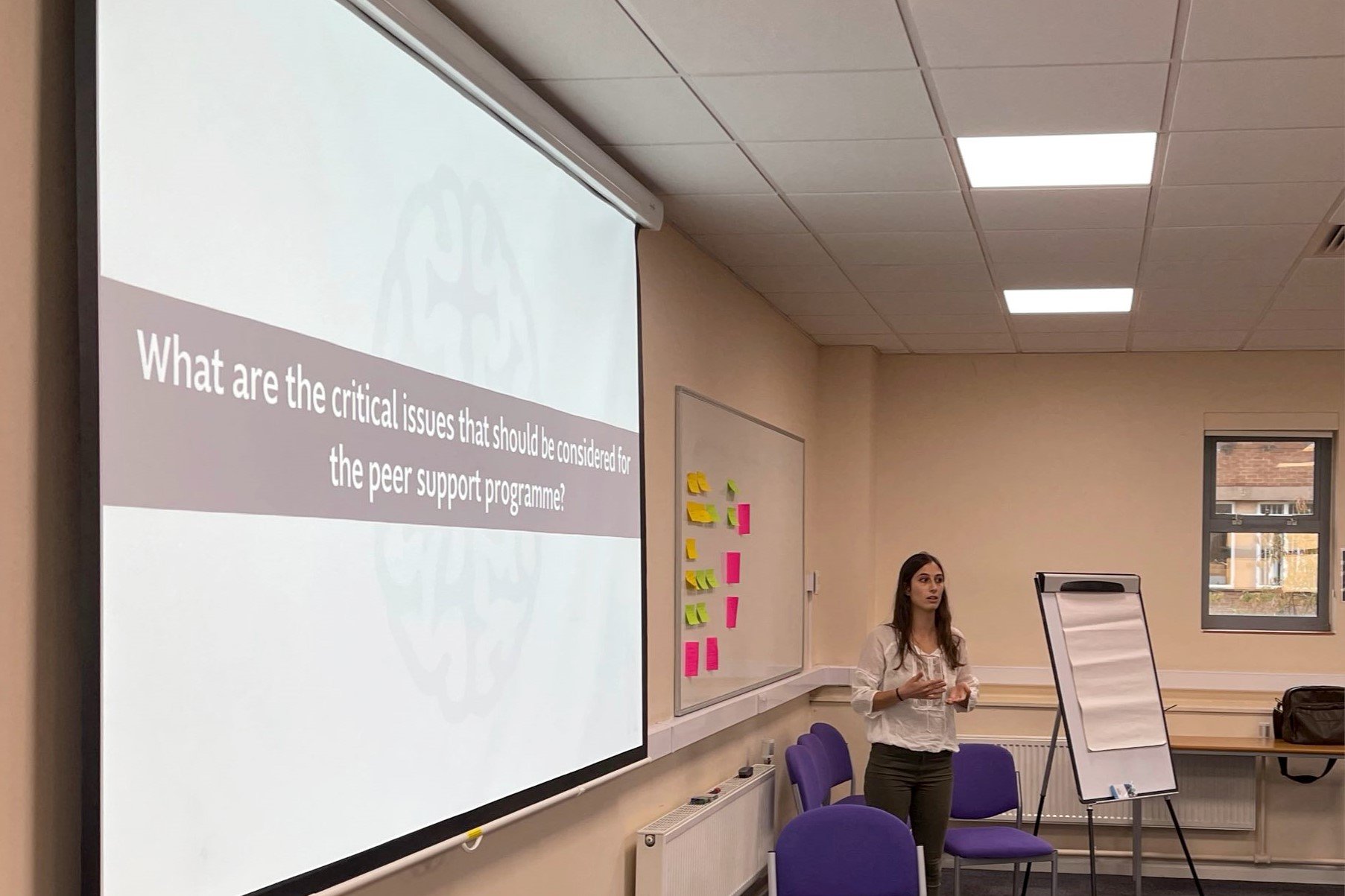Designing a peer support programme for drugs: Stakeholder workshop
Keele University is taking a more rehabilitative approach to student drug use. They have committed to ensuring students are educated and supported in regards to drug use and want to provide a safe and healthy community where all students are able to make positive life choices. As part of their commitment, they are designing a peer support programme just for drugs. Although universities tend to offer peer support for issues related to mental health or academic life in general, peer support for drug-related issues is rarely offered. To be able to develop a bespoke programme from scratch and deliver the relevant training to peers, Keele University has decided to work with NeuroSight.
The provision of such a programme is important for a number of reasons. Most students do not believe they can have an honest conversation with their university about drugs nor do they feel confident that their university would deal with their drug use appropriately if they required support. Consequently, and in addition to fear of punishment, students tend not to disclose their drug use even if they are experiencing problems. In turn, they try to deal with their problems by themselves, speak to their friends or go on online forums. However, these sources might not provide the most accurate information. Friends may fail to identify the potentially problematic behaviours that students might have and also signpost them to relevant resources in cases they need additional support.
A peer support programme for drugs is a great way of addressing the challenge of drug use disclosure as students feel more comfortable speaking to their peers, given that suitable confidentiality agreements are in place. Peers can also help disseminate accurate information on drugs and support students who might develop a problematic relationship early on. Such a programme increases the capacity of the university’s mental health services in reaching more students and allows professionals to focus on more complex cases.
NeuroSight has been working with Keele University to facilitate the development and implementation of a peer support programme for drugs. So far, NeuroSight has assisted the staff at the University to design the most suitable peer support model for their needs by running a structured brainstorming workshop. The team at NeuroSight will also deliver training to peers to ensure they are equipped to deal with drug-related issues.
The workshop was a great success. A wide range of stakeholders, from Resident Life Manager to Mental Health Nurse, participated. The session consisted of three sections. The first part was about delivering all the information stakeholders might need to develop the programme. These included topics such as the characteristics of students who use drugs that should be considered for successful engagement and how students’ drug behaviour might change throughout the year. The second part of the workshop focused on gathering inputs from all stakeholders while the third section was a structured discussion aimed at designing the model by utilising these inputs.
Participants reported that the session helped them plan the scope of the programme, understand how processes influence outcomes and consider critical issues. They also found it extremely helpful to hear different stakeholders’ concerns and to collectively come up with ideas around how those concerns can be addressed. NeuroSight will be revisiting Keele in the coming months, to deliver the bespoke training programme for ‘peers’. We look forward to seeing the impact of the programme and hearing students’ feedback.
Are you interested in developing an intervention to reduce drug-related harm?


